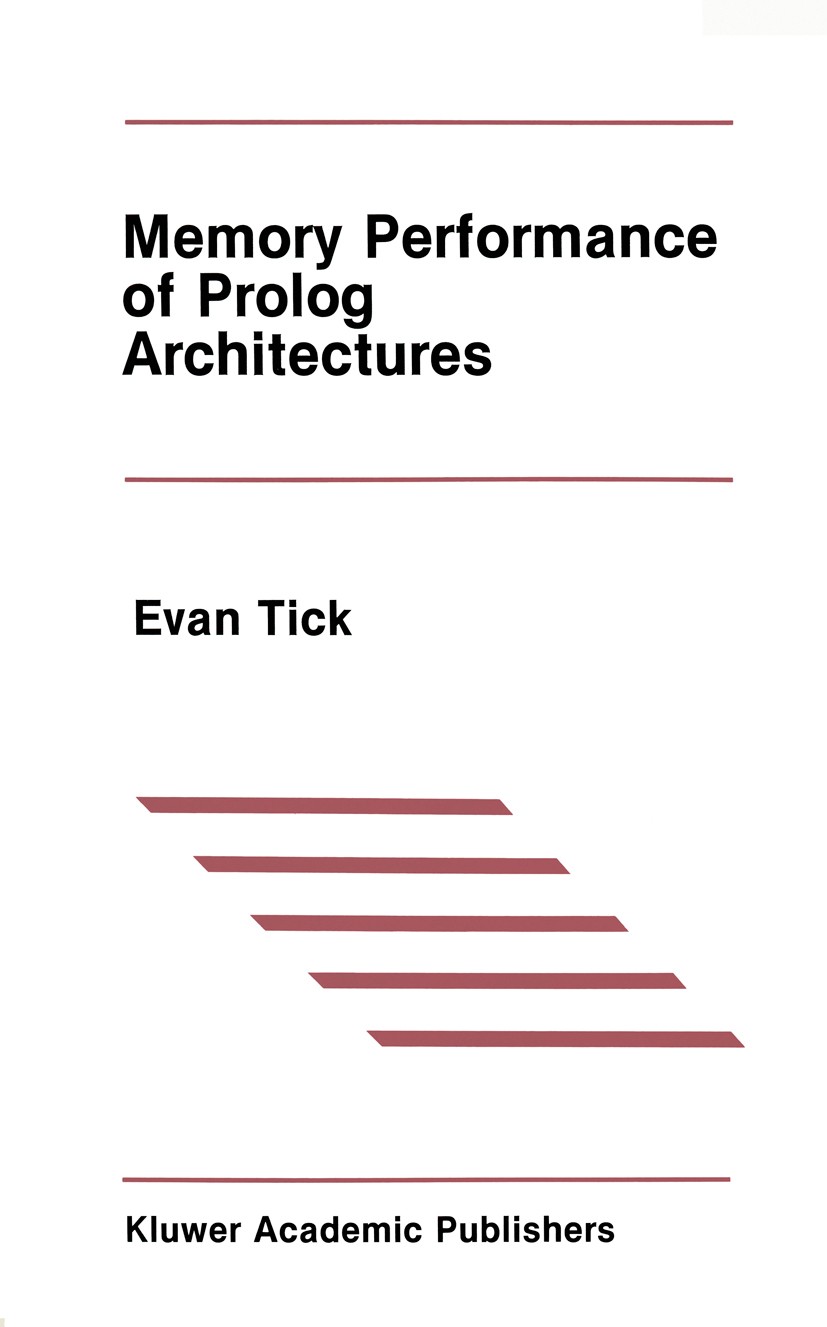| 書(shū)目名稱(chēng) | Memory Performance of Prolog Architectures |
| 編輯 | Evan Tick |
| 視頻video | http://file.papertrans.cn/631/630480/630480.mp4 |
| 叢書(shū)名稱(chēng) | The Springer International Series in Engineering and Computer Science |
| 圖書(shū)封面 |  |
| 描述 | One suspects that the people who use computers for their livelihood are growing more "sophisticated" as the field of computer science evolves. This view might be defended by the expanding use of languages such as C and Lisp in contrast to the languages such as FORTRAN and COBOL. This hypothesis is false however - computer languages are not like natural languages where successive generations stick with the language of their ancestors. Computer programmers do not grow more sophisticated - programmers simply take the time to muddle through the increasingly complex language semantics in an attempt to write useful programs. Of course, these programmers are "sophisticated" in the same sense as are hackers of MockLisp, PostScript, and Tex - highly specialized and tedious languages. It is quite frustrating how this myth of sophistication is propagated by some industries, universities, and government agencies. When I was an undergraduate at MIT, I distinctly remember the convoluted questions on exams concerning dynamic scoping in Lisp - the emphasis was placed solely on a "hacker‘s" view of computation, i. e. , the control and manipulation of storage cells. No consideration was given to the |
| 出版日期 | Book 1988 |
| 關(guān)鍵詞 | Broadcast; Fortran; Logic; Prolog; algorithms; architecture; compiler; computer; design; language; natural lan |
| 版次 | 1 |
| doi | https://doi.org/10.1007/978-1-4613-2017-3 |
| isbn_softcover | 978-1-4612-9202-9 |
| isbn_ebook | 978-1-4613-2017-3Series ISSN 0893-3405 |
| issn_series | 0893-3405 |
| copyright | Kluwer Academic Publishers 1988 |
 |Archiver|手機(jī)版|小黑屋|
派博傳思國(guó)際
( 京公網(wǎng)安備110108008328)
GMT+8, 2025-10-21 20:34
|Archiver|手機(jī)版|小黑屋|
派博傳思國(guó)際
( 京公網(wǎng)安備110108008328)
GMT+8, 2025-10-21 20:34


